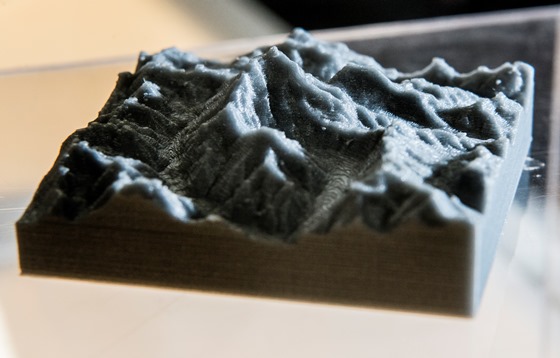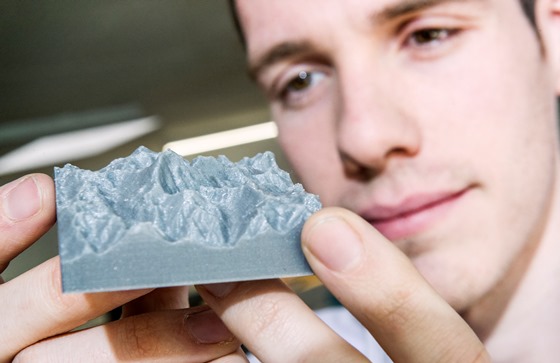A 3D printing expert from De Montfort University Leicester (DMU) is using the technology to create unique ways of helping some of the world's poorest people.
Dr Timothy Whitehead is working with a charity to use the emerging techniques to create vital water purification technology and 3D maps which will help save people from deadly landslides in Peru, South America.

Dr Whitehead said that although 3D printing technology is well established, its beneficial properties are only beginning to be understood and explored.
He said: "For me, the possibilities are really amazing. The way objects are created through 3D printing means we can create more complex parts and components, we can create geometrically intricate constructions.
"We can, in short, think completely differently about how to solve existing problems in our world."
Putting these ideas into practice, Dr Whitehead has teamed up with Practical Action, a charity which uses technology to challenge poverty and improve the lives of poor people worldwide.
He travelled out to Lima, in Peru, which has areas of poverty and high rates of violent crime, with many people living under the threat of landslides triggered by heavy rain.

There, in Practical Action's Lima offices, he demonstrated some of the creative ways 3D printing could help many of those people.
He said: "I was expecting to print engineering components, but one of the first things Practical Action wanted me to help with was to print a 3D topographical map of the areas of poverty in Lima. This showed, in clear detail, how landslides were a real danger and what would happen in their inevitable event.
"We were then able to use this to explain, across a language barrier, to people living there why we needed to make changes, to have safety measures put in place.
"Traditional manufacturing is quite limited: you need clear designs and production lines. With 3D printing we can be more creative; there's no way traditional manufacturing could so easily have produced that map."
RELATED NEWS
DMU leads British Council work into sustainable housing in Peru
DMU helps young Gambians establish a sustainable business hub
DMU's environmental sustainability is 'first class'
In addition, Dr Whitehead was able to test print components for water purification systems and weather sensing equipment which could in future be used to improve survival rates in the area.
The Lima visit was part of an initial collaboration between Dr Whitehead and Practical Action which will last until early June. At this point, the charity will look at how the technology could be used in other countries.
Dr Whitehead said: "The aim for me is to establish a regular collaboration and really explore the potential of 3D printing. If we can create a working model of helpful measures, we could look at whether this could be exported to Africa, Asia and so on.
"The possibilities really are huge."
Paul Smith Lomas, Practical Action Chief Executive, said: "We're really excited to be collaborating with De Montfort University. 3D printing could be a disruptive technology, leap-frogging traditional design and manufacturing processes.
"It could mean that people in developing countries are able to access new products faster and cheaper than they would in the past, making their lives better.
"You could call it a sort of democratisation of technology. At Practical Action we call it 'Technology Justice' and it is something we want to encourage more of."
Posted on Tuesday 29 March 2016